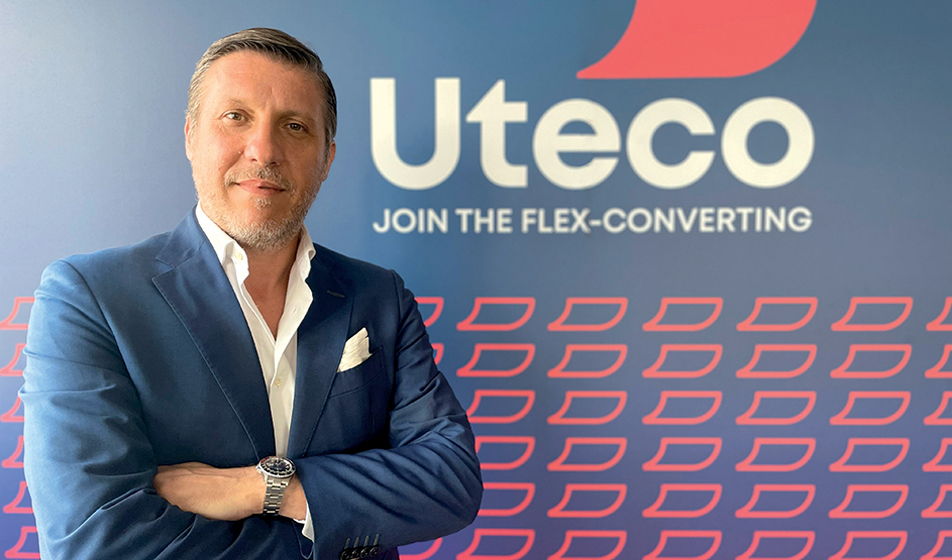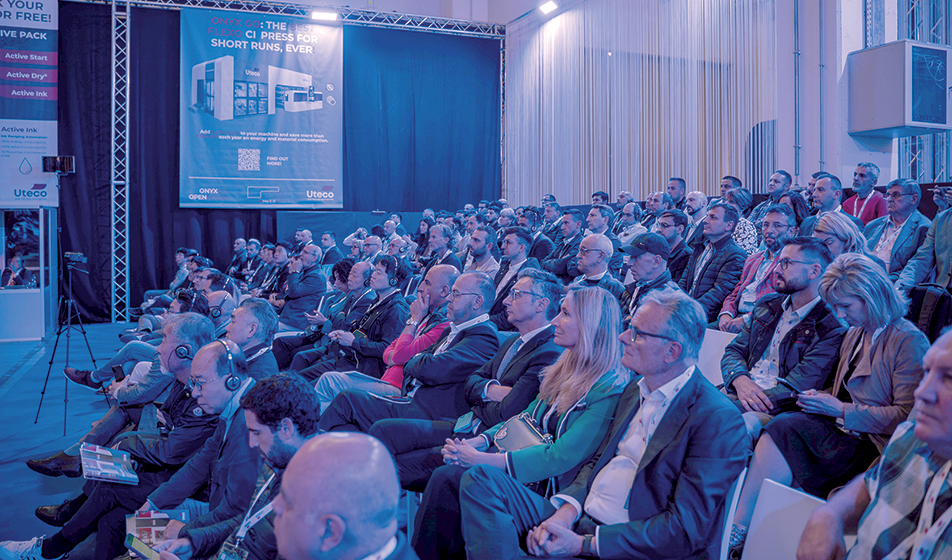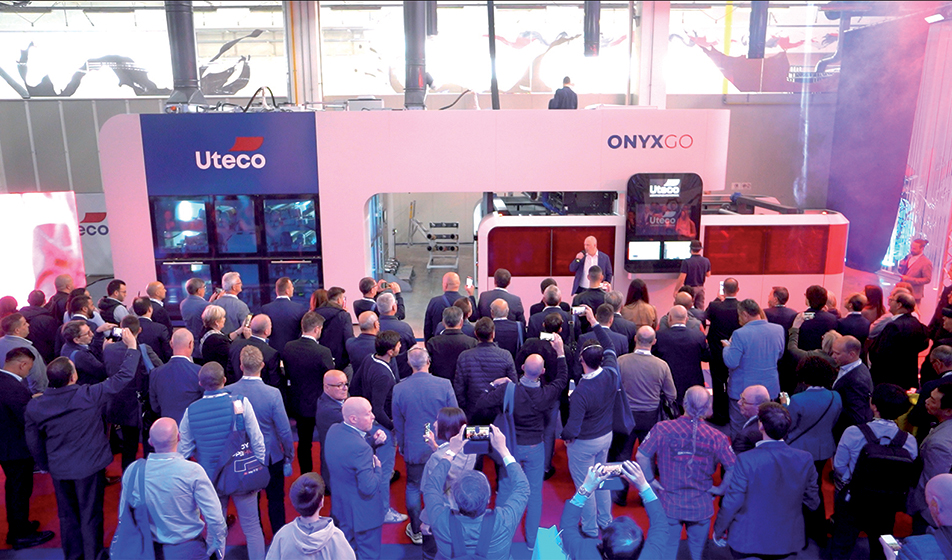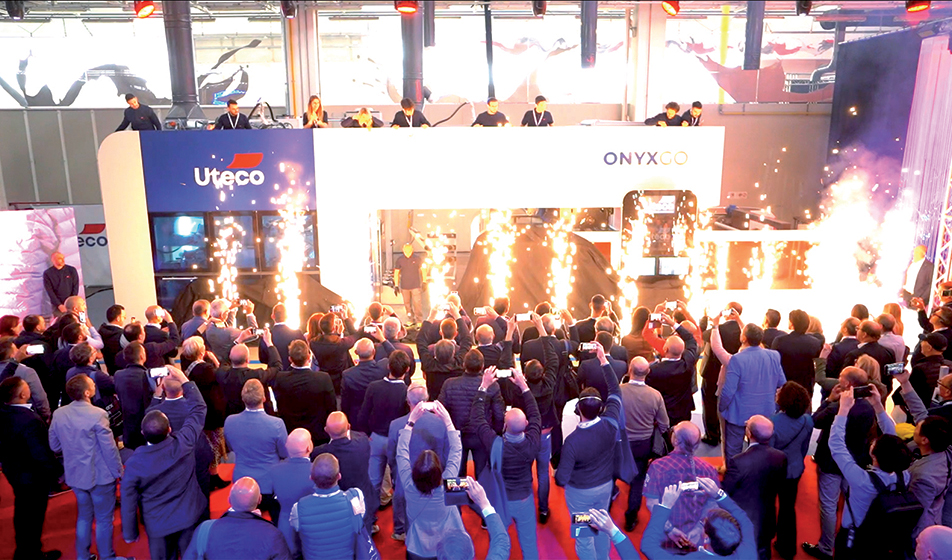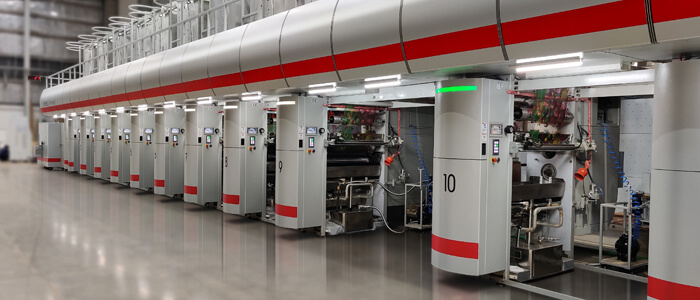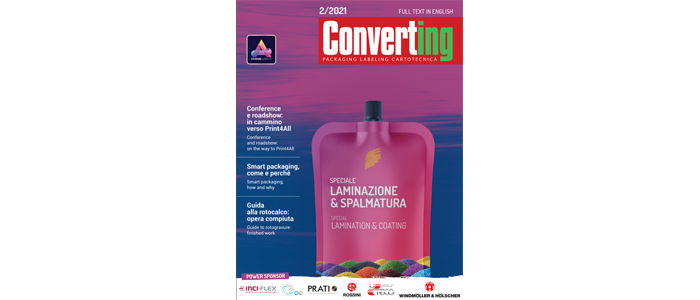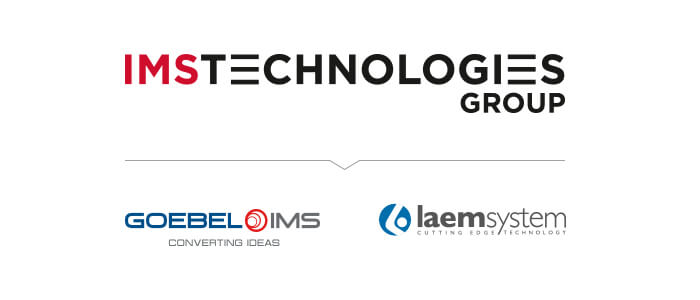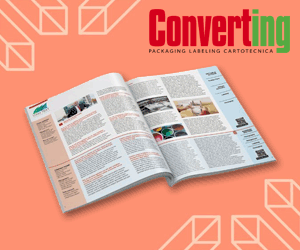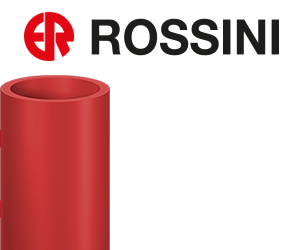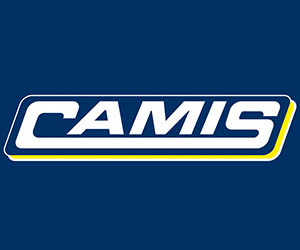New machines and services, an ever closer proximity to customers all over the world, new partners and an all-round development plan supported by large investments in R&D. Andrea Caselli, sales manager of Uteco’s North-West-South Europe area, tells us how the “pocket-sized multinational” from Colognola is growing, under the banner of flexibility.
With the lock-down over, the pandemic over, the big international flexible packaging fairs back ‘in attendance’, last May Uteco organised its first OH after the three incredible years that changed the world. It should have been, and was, a major international event to match the products, projects and new structure of a company that has set itself ambitious and far-sighted growth targets. A more managerial, international, listening and customer-oriented company, integrated upstream with the extrusion machines of its new partner GAP and with the control systems of the newly-acquired Vision, which foresees further acquisitions of technology and space in various application areas.
On stage we saw a structured, supportive and motivated management, and in demos the new product innovations, starting with the flexo CI Onyx GO for the first time in a live demo at the ConverDrome in Colognola, accompanied by the very fast Sleevebot robot for automatic sleeve changing, perfected with new gripping mechanisms.
Andrea Caselli, front-line ‘salesman’, architect of many fortunes for the Veneto-based manufacturer and now sales manager of the vast area that starts in the north from Finland, Norway, Sweden and Denmark; passes through the Benelux; brings together the UK and Ireland, and then France, Maghreb with the other French-speaking states of Africa “plus my historical areas, namely Italy, ex-Yugoslavia, Albania, Greece and Israel”, tells us about it. Like the managers of the other areas – South America with the Iberian Peninsula, North America, Asia, the Middle East and Eastern Europe with Germany – he coordinates the pool of managers operating within the same perimeter (by the way: he is looking for a new employee!) and reports directly to the group CEO, Mario Tomasi.
Dr. Caselli, at the open house in May you presented the world with a company that is clearly recognisable – in terms of its history and the many leading figures who have accompanied the group’s evolution – but also very different. How has Uteco changed?
It has changed a lot, over a period of years, which has led to the reorganisation of functions, the hiring of new staff, the reform of the commercial structure and many other things. And it has drawn up a development plan that envisages, by 2026, the complete updating of the production range and the development of new products consistent with an ambitious growth strategy. We want to become market leader in all segments of flexible packaging printing and converting, and we will also do this with new integrations after those already started in the world of extrusion together with GAP and in vision systems for quality control with Vision Srl.
Is the ‘pocket multinational’ of the origins giving way to a more classic globalised large enterprise?
Not at all. The bet is to grow a lot without becoming a slow-bodied mastodon with a nebulous identity. Above all, from the Uteco of the origins, we want to maintain that flexibility that allows us, each time, to look around and adapt our machines to the specific needs and projects of each user. It is a flexibility that allows us to find the right solution for today, upgradable according to tomorrow’s development, creating value, trust and collaboration. It is our trademark and our way of creating value, and remains at the heart of our development.
One of the words you used most in your May presentation was ‘listening’. What does it mean?
‘Listening’ is the first tool of those who want to operate in close contact with the market. And it entails not only sharing the same service culture apart from the whole company, but also setting up a network of structures and initiatives that truly enable this meeting with customers over a territory virtually as vast as the world. This involves not only our engineers, but also the new Service Department – which in four years will open 8 new Service Points around the world – and a Marketing Department committed to creating events in the various markets, such as the latest ‘Flex-On-Road’ roadshow in the UK, Mexico and the Arab Emirates.
In which geographical areas do you see the best opportunities for growth?
In a nutshell, in the industrialised countries of Europe and North America the prospects are the positive but moderate ones of mature markets, while – each at their own pace and with their own dynamics – the East and South America, the Middle East and Africa, especially Central and Maghreb, offer many opportunities.
Don’t you fear competition from local manufacturers?
There are local companies and Asian manufacturers with very aggressive pricing policies in the emerging markets. As a rule, however, it happens that a novice user might buy ‘the price’, but when their business develops and they needs reliable technology they turns to European or, at best, American suppliers. The measure of quality is us.
What do you envisage for the Italian market?
In recent years domestic growth has been sustained by the 4.0 incentives which, without saturating the market, have attracted a lot of investment and created production overcapacity. I therefore expect a 2023 and perhaps even a 2024 with a slight downturn, in a physiological adjustment. Partly as a consequence of a slowdown in consumption which, upstream, causes capex investments (Capital Expenditures, i.e. investments in plants and other fixed assets, Ed.) and continuously rising interest rates.
In which directions do you orient R&D?
Precisely because of its aptitude for custom design Uteco has always been very committed to innovation. Today we are dedicating even greater investments, amounting to 7% of the group’s revenues, to support a mega project to modernise the entire product portfolio. Starting with flexo and proceeding with roto, lamination and the rest of the technologies, by 2026 we will have all new machines.
What aspects do you work on in particular?
It depends on the application sector: apart from sustainability, which is of interest to everyone and sees us active together with supply chain partners, for the other characteristics the markets are very different from each other and users’ needs change accordingly. In flexo, where we start at 600 mm web, we have 3 product levels articulated by performance, degree of automation and price. To be clear, those who work on short runs are not interested in reaching 800 meters per minute; rather, they need a machine that is as compact as possible, user friendly, with a very fast setup and minimal waste. On the contrary, those who serve, to take just one possible example, mineral water or produce paper sacks work more on speed and consistency. It is a matter of setting up the offer for the right mix. Also in price of course.
In Colognola you formalised the collaboration with GAP and recalled the recent acquisition of Vision. Do you foresee any others?
Our growth projects concern all activities and all products, precisely to increase that customisation capacity which also includes offering hybrid solutions with multiple functions. Today we are selling a lot of flexo machines integrated with digital printheads for traceability and customisation, and with rotogravure units for special coatings; machines with laser die-cutting for laminating with windowing; large lines for the packaging of liquid foods… and there is still a lot of room for development. In this direction go both the alliance with GAP, which allows us to preside over the growing market of functional coatings – and thus also the strengthening of our global offer for the printing and converting of liquid packaging – and the one with Vision, which brings products and expertise in machine vision. In the same vein is the strengthening of services, not only post-sales but also pre-sales, to teach customers how to make the best use of their technologies, also with presence or remote training. And in the future, our business plan envisages several further actions, also to support Uteco’s entry into new application areas. Now it is too early to talk about it, but for the first information it will not be long to wait.

